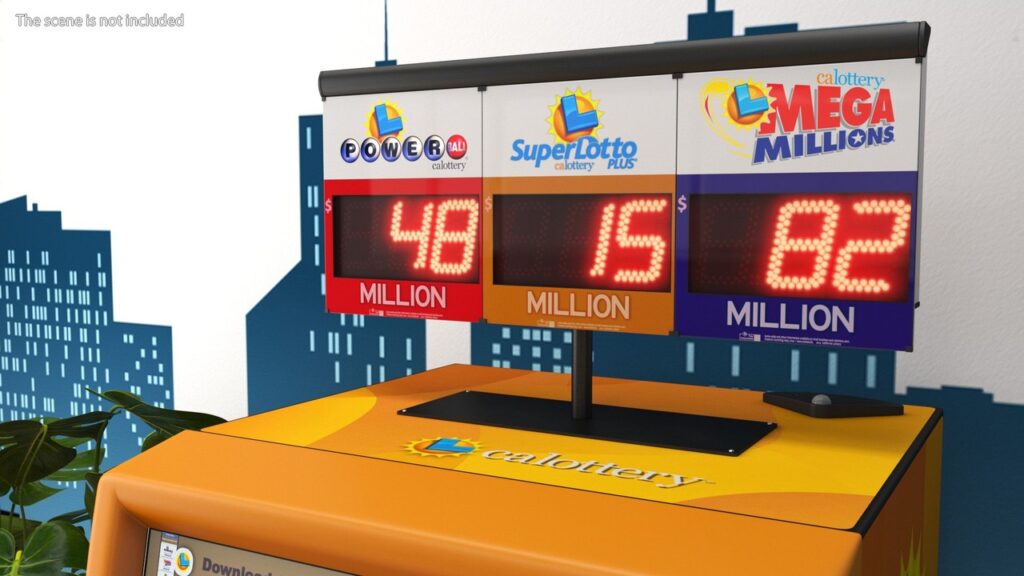Lottery Defeater Economic Analysis 10
Lottery Defeater Economic Analysis: Unveiling the Truth Behind Lottery Systems
Understanding the Concept and Its Implications

The allure of lottery winnings captivates millions around the world, promising life-changing sums in exchange for the slimmest odds. Despite its enticing nature, the lottery remains a fascinating subject for economists and analysts, with the “Lottery Defeater Economic Analysis” providing unique insights into its functioning. This analysis focuses on understanding the economic principles that drive lotteries, evaluating the probability of winning, and discussing the socio-economic impact on participants.
What is the Lottery Defeater Economic Analysis?
The Lottery Defeater Economic Analysis refers to a comprehensive examination of lottery systems from an economic perspective. It seeks to answer key questions: Why do people participate in lotteries despite the astronomical odds? Is there a way to improve one’s chances of winning? The analysis delves deep into behavioral economics, mathematical probability, and market structures to uncover how lotteries operate and what drives their massive popularity.
The Psychology of Lottery Participation – Lottery Defeater Economic Analysis
One of the central aspects of lottery participation is the psychology behind it. The Lottery Defeater Economic Analysis recognizes that people are drawn to lotteries due to the combination of hope, desire for wealth, and the allure of a ‘quick fix’ to financial troubles.
Risk and Reward: Why We Gamble – Lottery Defeater Economic Analysis
Humans are inherently risk-takers, especially when the potential reward far outweighs the cost. The low price of a lottery ticket, combined with the astronomical jackpot, creates a risk-reward ratio that appeals to even the most cautious individuals.
The Gambler’s Fallacy – Lottery Defeater Economic Analysis
Many lottery participants fall victim to cognitive biases like the gambler’s fallacy – the mistaken belief that future probabilities are influenced by past events. For instance, some believe that if a number hasn’t won in a while, it’s “due” to win, which drives repeated participation in lotteries.
The Role of Hope and Fantasy – Lottery Defeater Economic Analysis
Beyond the mathematics, there is an emotional component that drives people to buy lottery tickets. The hope of a better future and the fantasy of financial independence create a powerful motivator, often overriding the logical understanding of the slim chances of winning.
The Economic Structure of Lotteries – Lottery Defeater Economic Analysis
From an economic viewpoint, lotteries can be analyzed as a type of regressive taxation, where the lower-income population disproportionately contributes to the pot.
Lottery as a Revenue Model – Lottery Defeater Economic Analysis
Lotteries are a major revenue generator for governments and organizations. The economic structure of lotteries is based on a simple premise: a large number of people contribute small amounts, but only a handful receive large payouts. The rest of the money often goes towards public projects or social causes, making lotteries a significant source of funding.
The Odds and Distribution of Wealth – Lottery Defeater Economic Analysis

In economic terms, lotteries tend to create a significant disparity in wealth distribution. A small percentage of participants win large sums, while the majority lose. This structure amplifies the inequality gap, with most ticket buyers contributing to the wealth of a select few winners.
Impact on Low-Income Communities – Lottery Defeater Economic Analysis
A critical aspect of the Lottery Defeater Economic Analysis is the impact on lower-income populations. Studies have shown that people from lower socio-economic backgrounds are more likely to play the lottery, often seeing it as a viable means of escaping poverty. However, this creates a regressive system where those who can least afford to lose money are the ones most likely to participate.
Mathematical Probability and Lottery Odds
At the heart of any lottery system is the mathematical probability that determines a player’s chances of winning. The Lottery Defeater Economic Analysis examines the role of probability and how it affects lottery outcomes.
Understanding Lottery Odds – Lottery Defeater Economic Analysis
Lotteries are based on basic principles of probability. For example, the odds of winning a typical 6-number lottery are astronomically low, often calculated at 1 in 14 million or higher. This is due to the enormous number of possible number combinations.
Is There a Strategy to Beat the Lottery? – Lottery Defeater Economic Analysis
One of the biggest myths surrounding lotteries is the belief that there is a system or strategy that can significantly improve one’s odds of winning. While there are methods that claim to increase the likelihood of a win, such as number selection strategies or syndicate participation, the random nature of lotteries makes it almost impossible to defeat the system using pure economics or mathematics.
The Law of Large Numbers – Lottery Defeater Economic Analysis
In lottery systems, the law of large numbers ensures that, over time, the outcomes will reflect the actual probabilities. This means that while someone may win eventually, it is statistically improbable for any one person to consistently beat the odds.
Socio-Economic Implications of Lottery Systems
Lotteries have far-reaching socio-economic implications, affecting both individual behavior and broader societal trends.
Lottery Addiction – Lottery Defeater Economic Analysis
A significant issue arising from lotteries is the potential for addiction. Some participants, particularly those from financially vulnerable backgrounds, may develop compulsive behaviors, spending excessive amounts on tickets in hopes of winning. This can lead to financial distress and exacerbate poverty.
Redistribution of Wealth

While lotteries promise wealth to winners, the overall effect can be a net negative for society. The majority of participants will lose, effectively redistributing wealth from the many to the few. This contributes to socio-economic inequality, especially when lower-income individuals are the primary ticket buyers.
Public Funding and Lotteries
In many regions, lottery revenue is used to fund public services such as education, healthcare, and infrastructure. However, this raises ethical questions about the reliance on gambling as a source of public funding, particularly when the burden of lottery losses is disproportionately carried by lower-income populations.
Debunking Lottery Myths
The Lottery Defeater Economic Analysis addresses several common myths surrounding lottery systems.
Myth: Playing More Increases Your Chances of Winning
While buying more tickets does technically increase your odds of winning, the increase is negligible compared to the overall odds. Even with thousands of tickets, the chances of winning remain slim.
Myth: Some Numbers are Luckier than Others
There is no statistical evidence to support the idea that certain numbers are luckier than others. Lottery numbers are drawn at random, and every number combination has an equal chance of being selected.
Myth: Lottery is a Skill-Based Game
Lotteries are entirely based on chance. There is no skill involved in choosing numbers or predicting outcomes, making it impossible to influence the results through knowledge or strategy.
Can Economic Analysis Defeat the Lottery?
The fundamental question that the Lottery Defeater Economic Analysis seeks to answer is whether it’s possible to “defeat” the lottery through strategic play. The conclusion, backed by mathematical analysis, is that while certain strategies can marginally improve the odds, there is no reliable method to consistently win the lottery.
The Role of Syndicates

One-way players attempt to increase their chances is by joining lottery syndicates, where groups of people pool their money to buy more tickets. While this does increase the number of tickets a group holds, it doesn’t change the underlying probability of winning. Moreover, any winnings are shared among the group, reducing the individual payout.
Investing in Financial Education Over Lotteries
For individuals seeking financial improvement, investing in education or starting a business is a far more reliable path to wealth than buying lottery tickets. The lottery, while tempting, offers only a fleeting chance at success, whereas financial literacy and sound investment strategies can provide long-term stability and growth.
Conclusion: The Reality of Lottery Systems
The Lottery Defeater Economic Analysis provides a sobering view of lottery systems. While they offer the dream of sudden wealth, the odds are overwhelmingly stacked against players. Lotteries exploit human psychology, offering hope and excitement in exchange for slim chances of winning. From an economic perspective, lotteries act as a regressive system, disproportionately affecting lower-income individuals while funding public services. Understanding the true nature of lotteries can help individuals make informed decisions about their participation, shifting focus from gambling to more sustainable financial strategies.
Another PJ Multi Services Company
2 Comments